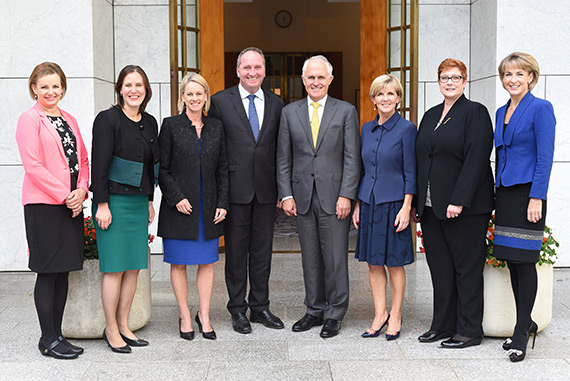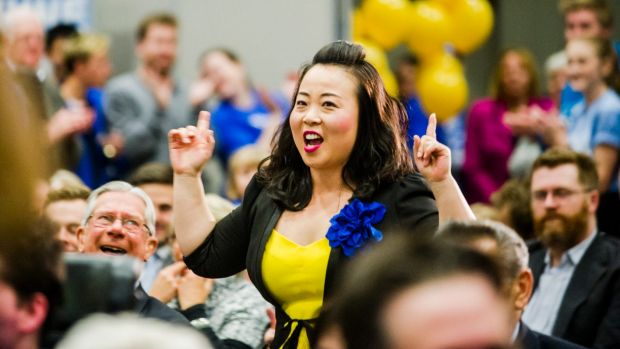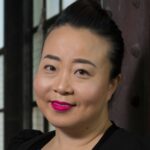There is no doubt that in 2017, Australia has some way to go to improve representation of women in leadership roles – whether that be in politics or in other fields.
The issue of quotas comes up from time to time and certainly as a political weapon used by Labor and Greens to attack the Liberals about the number of women members elected into Parliament. And, to be fair, Labor and Greens do have a greater representation of women amongst their elected members.

Elizabeth Lee campaign 2016
Like with a lot of issues of equity, inclusion and diversity, there is no easy answer in attaining gender equity. If there was, surely we would have solved this already!
Any and every idea to improve representation of women in politics is worth exploring.
The biggest issue I have with quotas, however, is this: if we set quotas for women in politics, what is the reason for not having quotas for other “groups” (I guess I can’t really say “minority groups” now given the latest ABS stats shows that there are more women than men)?
… if we set quotas for women in politics, what is the reason for not having quotas for other “groups”
The make-up of our parliaments (at federal and at State/Territory levels) should, as much as possible, broadly reflect the diversity of the community that we serve. And this is why it’s so important to have about half women elected members. But what about our Indigenous Australians? Our non-Anglo Australians? Our LGBTIQ Australians? Will we start to see quotas for all? And if not, why not?
My party can and should do better on this issue
I am the first to say that, as a Liberal, my party can and should do better on this issue and I am personally engaging with young Liberal women at the university and Young Liberals level to encourage, mentor and make influential roles in the party more accessible to them.

It’s no secret that the Liberal Party does not have a quota. The Canberra Liberals certainly doesn’t.
What we do have, however, is a Party Room that is half women. Out of the 11 Canberra Liberals members, we currently have five women and six men. This make up is likely to go to six women and five men depending on who is elected on a count back after Member for Kurrajong Steve Doszpot announced his retirement this month.
The diversity of our Party Room was not achieved by quotas
And what we do have is a Party Room that includes a number of members from cultural backgrounds other than Anglo-Australian. Our Party Room’s diversity stands in stark contrast to the members from the Labor and Greens’ which is extraordinarily homogenous.
The diversity of our Party Room was not achieved by quotas. This was achieved by elected members (men and women) identifying, encouraging and supporting good women candidates.
This was achieved by creating a party culture that values achievements and contributions by all Canberrans, whatever their background or experience.
We can all do more to achieve gender equity. This is not just a “women’s” issue left for just women to champion. This is an issue of diversity, equality and, more importantly, it is a matter of what is best for our community.
And that impacts all of us.
Elizabeth Lee, MLA is Assistant Speaker, Shadow Minister for Education, Shadow Minister for Disability, Shadow Minister for the Environment and Member for Kurrajong in the ACT Legislative Assembly. Elizabeth migrated to Australia from South Korea in 1986 when she was seven years old. She moved to Canberra at 18 to study Law and Asian Studies at the ANU. Elizabeth has practised law in government and the private sector and lectured in law at the ANU and University of Canberra.





